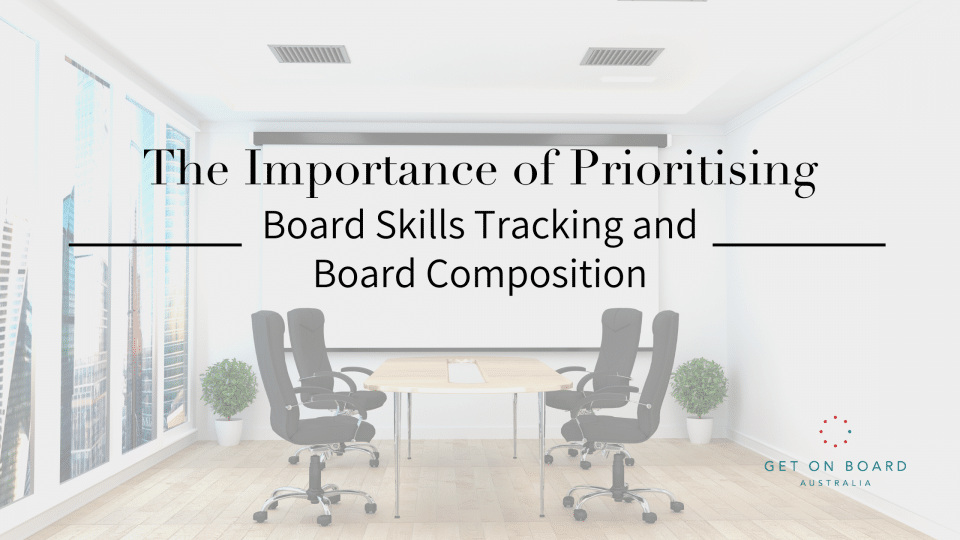The Importance of Prioritising Board Skills Tracking and Board Composition

Learning your board members’ unique strengths, along with their backgrounds and perspectives, will lead to better decisions and a more effective board.
In a recent OnBoard webinar, “Skills Tracking & Board Composition”, a question was posed to the audience: “Are you keeping track of your board’s skills today?”
While 74% of respondents said they were, only 9% claimed to “have a formal, proven process that’s working.” Another 26% responded, “yes, though we want to get better,” and the largest plurality (38%) said “kind of; limited in scope and completeness.”
OnBoard Chief Product Officer Doug Wilson, encourages organisations to make skills tracking a higher priority. “Don’t think of this as a check-the-box activity,” he said. “Think about the value of this. You’ll get so much more out of it.”
Fortunately, OnBoard’s Board Management Software will provide access to a new Skills Tracking feature available soon.
“Don’t think of this as a check-the-box activity. Think about the value of this. You’ll get so much more out of it.”
– Doug Wilson, OnBoard chief product officer
Why Board Composition Matters
Diversity is important when building a board but boards should think of diversity beyond the conventional sense (race, gender, etc.). Boards should also consider their members’ diversity in skill sets, experience and background, which can bring some natural competitive advantages to your board.
“If you have a balanced board, you tend to have better conversations, more diversity of thought, make better decisions and have a more holistic strategy,” said Karen Griffin, OnBoard’s head of customer and product marketing.
Skills Tracking can help boards navigate this priority. It can help boards recognise and alleviate experiential blind spots and leverage that diversity in a way that helps the board and the organisation it serves thrive.
Why Track Your Board’s Skills?
Skills tracking provides boards with three distinct advantages over boards that don’t do it:
- It provides a comprehensive view of board members’ skills and experience
- It enables boards to make informed decisions for succession planning and recruitment
- It becomes an important part of the board’s future
“When you know the skills that are important to your organisation, now you can look for the gaps,” Wilson said. “If you don’t have those things in place today, it makes it challenging to know what to look for in your next board member.”
Currently, in the absence of a skills tracking board management tool, nearly half (48%) of webinar attendees said they use an Excel spreadsheet or a Word document to track board members’ skills. Another 11% said they use online surveys like SurveyMonkey or Google Forms.
How Skills Tracking Can Revolutionise Your Board
Identifying your boards strengths and weaknesses is vital to developing well-rounded governance that drives long-term value. OnBoard’s Skills Tracking tool will help boards operate better:
- Manage skills tracking for their boards within the OnBoard platform
- Identify skills gaps in their current boards
- Make informed decisions for new member recruitment or succession planning that aligns with their strategic direction
- Save time and minimize complexity by having their board composition data in a central, secure location
It will allow users to select skill needs, assign skills to board members, notify board members of any updates and select board members to assign skills. Board members will also be able to add new skills to the platform, which will be pre-populated with “typical” skills.
Meet What’s Next
Discover how tracking your boards skills will help inform your succession planning while helping you forge a more thoughtful and diverse board of directors.
